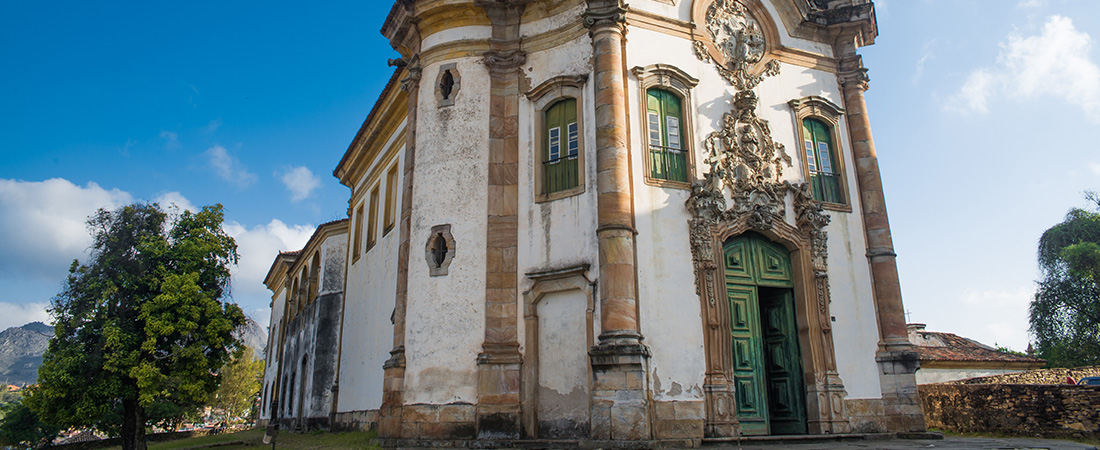4th Period – 21st Century
The fourth period brings four important novelties concerning the circumstances and characteristics of the publications of the 18th and 19th century Brazilian sacred repertoire:
- the role of private companies, resorting to cultural stimulus (tax-rebate) laws to finance publications;
- the widespread use of music software to editing the works;
- attention to the parts for the performance of the works;
- digital promotion of the works.
The Projeto Restauração e Difusão de Partituras was a pioneer in resorting to private funding, in this case through Petrobras, to publish sacred works from the time frame that concerns us here. In three years, fifty-one works from manuscripts held in the Mariana Music Museum were edited, all from the 18th and 19th centuries, and by many different authors. These editions were produced according to strict musicology criteria, bringing detailed critical apparatus, besides introductory texts, studies of the literary text and a brief analysis of the works. Along with the works published on paper, digital versions of all these musical scores are available on the Mariana Music Museum website, www.mmmariana.com.br. Only the parts for performance still have restricted access. An important new aspect of this project is that all the works have been recorded and released in CD format. The project had the general management of the musicologist Paulo Castagna and our editorial management.
To mark the celebrations of the 200 years of Lobo de Mesquita's death, the Mariana Music Museum published in 2005 five works of this important Minas Gerais-born composer. Sponsored by Caixa Econômica Federal, this publication had André Guerra Cotta general manager and Marcelo Hazan as editorial manager. It is extremely well made, from a musicological point of view, in the information included and also in its graphic aspects.
The conductor Marcelo Pontes published between 2006 and 2010 twenty-nine sacred and religious works by Minas-born composers from the 18th and 19th centuries, besides other profane works. Titled Ouro de Minas, the series was partially sponsored by Natura and has the peculiarity that one can only order them from a online catalogue (www.editorapontes.com.br). The parts for performance are also available.
The same procedure of ordering from an online catalogue was adopted by the Brazilian Music Academy (Academia Brasileira de Música/ABM – www.abmusica.org.br). Titled Banco de Partituras (Musical Score Bank), the series comprises compositions by authors of any given time frame. Sixteen musical scores from the period concerning our catalogue are available, along with their performance parts. The conductor Ernani Aguiar is responsible for the publication of these sacred works.
The international website Choral Public Domain Library (www.cpdl.org) offers a great amount of musical scores of Brazilian sacred works from the 18th and 19th centuries, free of charge. This material, although mainly mere copies, is another tool for promoting the repertoire in question.
FUNARTE is still active in the area of publishing sacred works from the 18th and 19th centuries. The series Música no Brasil was released in 2002, under the management of researcher Ricardo Bernardes. The collection includes 6 volumes, 5 of which are within the limits of our present research. Thirty-seven works by Brazilian composers of various regions were published. There are also two works by the Austrian composer Sigismund Neukomm. The volume VI is a reproduction of the twelve aforementioned works included in the collection Música Sacra Mineira.
The musicologist Régis Duprat continued his editorial path, releasing in 2004 the third volume of the collection Música do Brasil Colonial, comprising of ten sacred works by composers from Minas Gerais from the 18th and 19th centuries.
Its also worth mentioning two works published in 2004 by researcher Marshall Gaioso Pinto, from the state of Goias, with support from the Cultural Agency of Goias (Agência Goiana de Cultura): Missa do Divino Espírito Santo (CMSRB-097/025), of uncertain origin, and Credo de São José do Tocantins (CMSRB-040/002), by an anonymous composer.
The most recent editorial initiative concerning, although not exclusively, sacred music from the 18th and 19th centuries is the project Patrimônio Arquivístico-Musical Mineiro (PAMM), funded by the Minas Gerais Culture Department (Secretaria de Cultura de Minas Gerais). The collection, released in 2008 comprises two volumes, dedicated to the composers Lobo de Mesquita, with nine of his works, and Jerônimo de Sousa, with four of his works. We had the privilege of being a part of the team in charge of the project, managed by musicologist Paulo Castagna. Besides the print material, all the works are available on the website www.cultura.mg.gov.br/pamm, not only the musical score but also the parts for performance. A fourth volume appeared on-line in 2011, containing the Missa e Credo a 5 vozes, by Antônio dos Santos Cunha (17?-18?).
© 2017 Carlos Alberto Figueiredo | All rights reserved.


